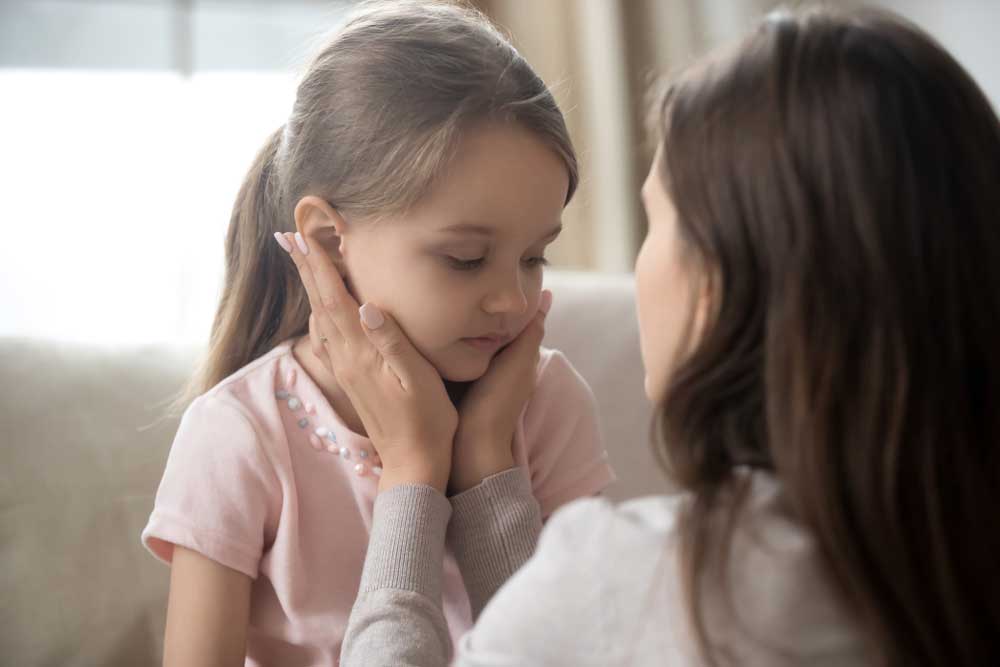For many parents, finding out that their child is being bullied is their worst nightmare. Bullying can occur starting from a young age and can even occur well into high school. It comes in a variety of forms such as physically hurting someone, verbally teasing or threatening someone, hazing, emotional intimidation, social exclusion, and cyberbullying. In many cases, children will endure being bullied in silence and will avoid telling a teacher or parent. Bullying can be extremely detrimental to one’s mental health. It can lead to low self-esteem, anxiety, depression, and even thoughts of suicide. Because of this, it’s very important for parents to be able to recognize the signs of bullying and to take the proper steps to ensure it is stopped.
Signs that a Child is Being Bullied
The way each child responds to bullying can be different, but there are some common signs to look out for. They include:
- Coming home with tattered clothing or broken belongings
- Unexplained cuts or bruises
- Not wanting to go to school
- Appearing sad and reserved when coming home from school
- Coming up with excuses for why they can’t go to school
- Having trouble sleeping
- Not having an appetite
- Often complaining of stomachaches or headaches
- Appearing anxious
- Struggling with low self-esteem
- Acting afraid when boarding the bus or being dropped off at school
The Short and Long Term Effects of Bullying
- Feelings of shame
- Social isolation
- Missed opportunities due to fear of bullying
- Symptoms of mental illness
- Poor performance in school
- Trouble maintaining relationships
- Increased risk of substance misuse
- Self-destructive behaviors
- Trouble trusting others
- Poor overall health
What to Do When Your Child is Being Bullied
If you suspect that your child is being bullied, your first step is to gently ask them about it and see if they will tell you what is going on. If the child is younger, and may not have a great understanding of what bullying is, it may be helpful to ask them more general questions. Some examples include:
- Are there any kids at school who tease or make fun of you?
- Do you feel safe at school?
- Is there anyone that is hurting you?
- Do kids at school ever leave you out on purpose?
- Do you have friends to sit with at lunch and play with at recess?
At first, your child may be hesitant to answer these questions. They might fear that doing so will make the bullying worse. If they seem uncomfortable, try changing the subject and asking again at a different time. If you are still struggling to make much progress, it might be time to contact the child’s teacher. As hard as they may try, teachers can’t keep an eye on every single student at all times throughout the time. Thus, bullying might go on unnoticed right under their nose. However, you can still ask them general questions about your child to get a better sense of how they are behaving at school. Some examples include:
- Does my child get along with other kids?
- Who do they spend a lot of their time with?
- Does it appear that my child has friends?
- Have you ever witnessed any students being mean to my child?
- Is there anyone at school that my child seems to be afraid of?
You can also ask the teacher if they would mind keeping an extra close eye on your child during time periods when bullying would be most likely to occur, such as at lunch or recess. If the problem persists, consider contacting the school counselor and asking them to look into the issue.
To help prevent your child from being bullied, teach them at a young age what bullying is, how to identify the signs of it, and what to do if they see it happening. Encourage them to always speak to a teacher, parent, or other trusted adult if they are being bullied.
Helping a Child Who is Being Cyberbullied
When a child is older, bullying stops happening on the playground and starts happening through the Internet. It can occur through hateful text messages, the spreading of cruel rumors, or mean comments on social media platforms like Snapchat, Facebook, and Instagram. If your child is a victim of cyberbullying, consider encouraging them to limit their social media use, block users who are hateful towards them, and only connect with people that they are friends with in real life. Cyberbullying is very serious and in some situations can even be punishable by legal action.
Bullying affects many children and teens throughout the nation. It can come in the form of physically harming someone, taunting or threatening them, social exclusion, or cyberbullying. Bullying can be extremely damaging to a child’s mental health and can destroy their self-esteem. Thus, it is important to know how to recognize the signs that a child is being bullied so steps can be taken to help the situation immediately. Bullying has both short and long-term effects on a person and can lead to mental health disorders. If you suspect your child is being bullied, gently encourage them to open up about it and ask them general questions about what is going on at school. Contact their teacher or school counselor if necessary. If you would like to know more about a particular mental health disorder, our team at Achieve Concierge is here to help. Call (619) 393-5871 today to learn more about the different types of services that we provide.



